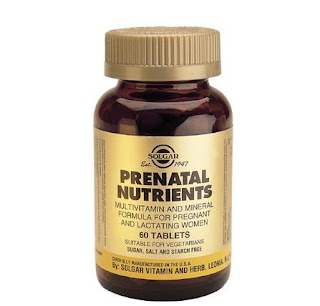
Every woman wants their pregnancy to go as smoothly as possible. However that depends on how much you take care of yourself, on the diet you eat and of course the prenatal vitamins you take. A major and important part of pregnancy is a prenatal vitamin. With the advice of your physician, you must take a good prenatal vitamin to aid the growth and development of your unborn baby.
There are several options when it comes to a prenatal multivitamin which ranges from prescription to counter. Your doctor may also recommend a brand or offer their advice to choose a good prenatal vitamin. So, what do you look for when you go out to shop for pregnancy prenatal vitamins?
A prenatal multivitamin contains all the essential vitamins and minerals which are all needed to help the baby develop. When you look for the ingredients in a pregnancy vitamin, you must look for folic acid, iron, calcium, vitamins A, B1, B2, B6, B12, C, D, E, and minerals like magnesium, zinc, copper and Omega 3 fatty acid.
All the above vitamins and minerals are vital for a healthy pregnancy and one of the most important of all these components is folic acid. This vital component prevents birth defects of the spinal cord and the brain.
There are also prenatal supplements which provide the perfect nutrients at each pregnancy stage. These pregnancy vitamins will provide the exact nutrients which are needed for a healthy pregnancy.
Most women would also consider the price of the vitamins before they buy them. The fact is that the best prenatal vitamins won’t come in cheaper prices. When you want the best they will give you the best. They will offer you the best nutrients and you can get the best out of it.
There are several options when it comes to a prenatal multivitamin which ranges from prescription to counter. Your doctor may also recommend a brand or offer their advice to choose a good prenatal vitamin. So, what do you look for when you go out to shop for pregnancy prenatal vitamins?
A prenatal multivitamin contains all the essential vitamins and minerals which are all needed to help the baby develop. When you look for the ingredients in a pregnancy vitamin, you must look for folic acid, iron, calcium, vitamins A, B1, B2, B6, B12, C, D, E, and minerals like magnesium, zinc, copper and Omega 3 fatty acid.
All the above vitamins and minerals are vital for a healthy pregnancy and one of the most important of all these components is folic acid. This vital component prevents birth defects of the spinal cord and the brain.
There are also prenatal supplements which provide the perfect nutrients at each pregnancy stage. These pregnancy vitamins will provide the exact nutrients which are needed for a healthy pregnancy.
Most women would also consider the price of the vitamins before they buy them. The fact is that the best prenatal vitamins won’t come in cheaper prices. When you want the best they will give you the best. They will offer you the best nutrients and you can get the best out of it.


